I am working in seagull diameter, This is my scenarios for seagull server and seagull client
Client Server
---- CER ---->
<--- CEA ----
---- AAR ---->
<--- AAA ----
---- STR --->
<--- STA ----
But the Result:
 So that it's not follow my scenario, please help me how to config something in to both server and client could synchronize?
So that it's not follow my scenario, please help me how to config something in to both server and client could synchronize?
Here is Client Scenario
<?xml version="1.0"?><scenario>
<init>
<send channel="channel-1">
<command name="CER">
</command>
</send>
<receive channel="channel-1">
<command name="CEA"> </command>
</receive>
</init>
<traffic>
<send channel="channel-1">
<command name="AAR">
<avp name="Session-Id" value="trandeptrai"> </avp>
</command>
</send>
<receive channel="channel-1">
<command name="AAA"> </command>
</receive>
<send channel="channel-1">
<command name="STR">
<avp name="Session-Id" value="trandeptrai"> </avp>
</command>
</send>
<receive channel="channel-1">
<command name="STA"> </command>
<action>
<store name="Session-Id" entity="Session-Id"> </store>
</action>
</receive>
</traffic>
</scenario>
Client config:
<?xml version="1.0"?>
<configuration name="jpT DIAMETER client">
<define entity="transport" name="trans-ip-v4" file="libtrans_ip.so" create_function="create_cipio_instance" delete_function="delete_cipio_instance" init-args="type=tcp"> </define>
<define entity="channel" name="channel-1" protocol="diameter-v1" transport="trans-ip-v4" open-args="mode=client;dest=134.138.249.41:12340"> </define>
<define entity="traffic-param" name="call-timeout-ms" value="10000"> </define>
<define entity="traffic-param" name="files-no-timestamp" value="true"> </define>
<define entity="traffic-param" name="call-rate" value="1"> </define>
</configuration>
Server Scenario:
<?xml version="1.0"?><scenario>
<init>
<receive channel="channel-1">
<action>
</action>
<command name="CER">
</command>
</receive>
<send channel="channel-1">
<command name="CEA"> </command>
<action>
</action>
</send>
</init>
<traffic>
<receive channel="channel-1">
<command name="AAR"> </command>
<action>
<store name="Session-Id" entity="Session-Id"> </store>
</action>
</receive>
<send channel="channel-1">
<action>
<restore name="Session-Id" entity="Session-Id"> </restore>
</action>
<command name="AAA">
<avp name="Session-Id" value="1"> </avp>
</command>
</send>
<receive channel="channel-1">
<command name="STR"> </command>
<action>
<store name="Session-Id2" entity="Session-Id"> </store>
</action>
</receive>
<send channel="channel-1">
<action>
<restore name="Session-Id2" entity="Session-Id"> </restore>
</action>
<command name="STA">
<avp name="Session-Id" value="1"> </avp>
</command>
</send>
<!-- <wait-ms value="100"> </wait-ms> -->
</traffic>
</scenario>
Server config:
<?xml version="1.0"?>
<configuration name="jpT DIAMETER client">
<define entity="transport" name="trans-ip-v4" file="libtrans_ip.so" create_function="create_cipio_instance" delete_function="delete_cipio_instance" init-args="type=tcp"> </define>
<define entity="channel" name="channel-1" protocol="diameter-v1" transport="trans-ip-v4" open-args="mode=client;dest=134.138.249.41:12340"> </define>
<define entity="traffic-param" name="call-timeout-ms" value="10000"> </define>
<define entity="traffic-param" name="files-no-timestamp" value="true"> </define>
<define entity="traffic-param" name="call-rate" value="1"> </define>
</configuration>